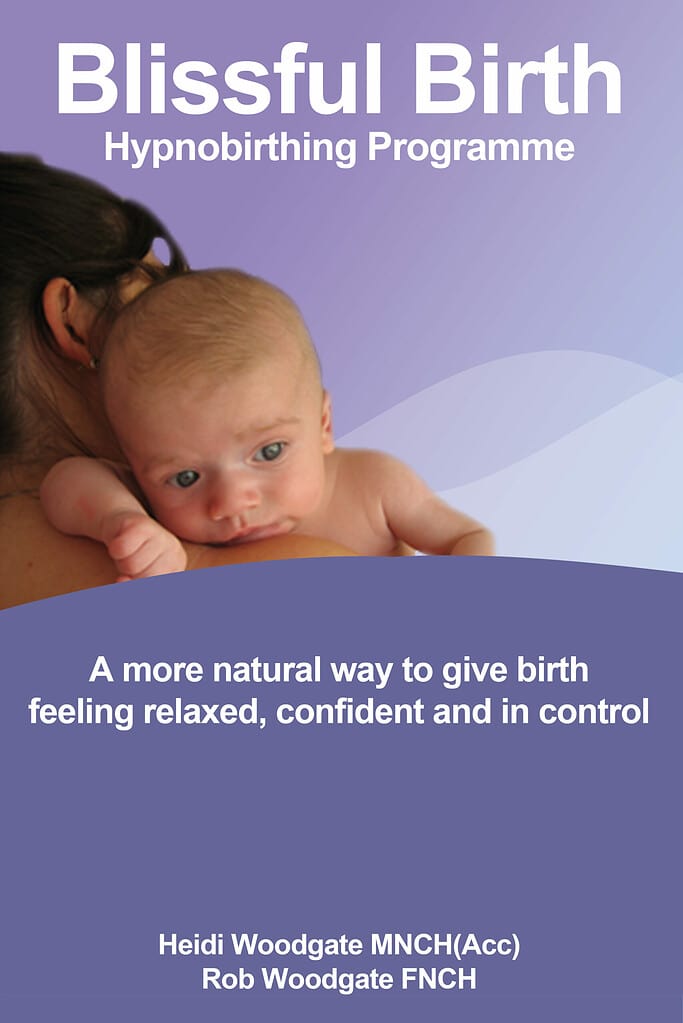Pregnancy is a time of joy, anticipation, and often, a myriad of questions. One such question that frequently arises is about caffeine consumption. With coffee being a staple in many people’s lives, it’s natural to wonder about its safety during pregnancy.
This article delves deep into the topic, exploring the nuances of caffeine, its effects, and the considerations for expecting mothers.

Table of Contents
- The Quick Answer is…
- Understanding Caffeine
- Regular Coffee vs. Decaf: The Key Differences
- The Safety of Coffee During Pregnancy
- Decaf Coffee During Pregnancy: What Research Says
- Can Decaf Coffee Cause Miscarriage?
- The Psychological Impact of Reducing Caffeine Intake
- Potential Risks of High Caffeine Consumption
- Guidelines for Consuming Decaf Coffee
- Alternatives to Coffee: Healthy Choices for Expecting Mothers
- Can Drinking Decaf Coffee with Cinnamon Cause a Miscarriage While Pregnant?
- Conclusion
The Quick Answer is…
Yes, you can drink decaf coffee while pregnant in moderation. Although decaf coffee isn’t 100% caffeine free, and there is no known “safe” limit for caffeine consumption, decaf coffee is generally considered safe to drink in pregnancy by medical bodies, such as the NHS.
Some caution is required, however, as the amount of caffeine remaining varies by brand, and the decaffeination process may introduce trace amounts of undesirable chemicals.
Understanding Caffeine
Caffeine is a natural stimulant most commonly found in coffee, tea, and many sodas. It works by stimulating the central nervous system, which can make you feel more awake and alert. For many, it’s an essential part of the morning routine, providing that much-needed kickstart to the day.
Beyond coffee, caffeine is also present in varying amounts in tea leaves, cocoa beans, and even some medications. Its effects aren’t just limited to warding off drowsiness. Caffeine can increase focus, improve mood, and even enhance physical performance. However, like all things, it’s best consumed in moderation.
During pregnancy, the body’s metabolism changes, leading to slower processing of caffeine. This means that its stimulating effects can last longer in a pregnant woman than in someone who isn’t pregnant.
Moreover, caffeine can cross the placenta, reaching the fetus, which has yet to develop the enzymes needed to process it effectively.
Regular Coffee vs. Decaf: The Key Differences
While both regular and decaf coffee come from the same beans, the primary difference lies in the caffeine content. Decaffeination is a process that removes most of the caffeine from the beans before they’re roasted.
It’s worth noting that decaf doesn’t mean caffeine-free. Most decaf coffees still contain some caffeine, but it’s significantly less than their regular counterparts.
There are several methods of decaffeination, including using water, organic solvents, or carbon dioxide. The choice of method can influence the flavor profile of the coffee, but all aim to retain the coffee’s original character while reducing its caffeine content.
For those looking to reduce their caffeine intake, decaf can be an excellent choice. However, the question remains: is it safe during pregnancy?
The Safety of Coffee During Pregnancy
The consensus among health professionals is that moderate caffeine consumption during pregnancy is safe. Most guidelines suggest that pregnant women can safely consume up to 200-300 mg of caffeine daily, equivalent to about a 12-ounce cup of coffee.
However, excessive caffeine intake can pose risks. Some studies have suggested a link between high caffeine consumption and miscarriage, premature birth, low birth weight, and developmental issues. It’s also worth noting that caffeine can increase heart rate and blood pressure, which might not be ideal during pregnancy.
Decaf coffee, with its reduced caffeine content, can be a safer alternative for those who want to enjoy the taste of coffee without the stimulating effects of caffeine.
However, it’s essential to be aware of the caffeine content in decaf coffee, as it can vary between brands and brewing methods.
Decaf Coffee During Pregnancy: What Research Says
Decaf coffee, while significantly lower in caffeine than its regular counterpart, has been a topic of debate among researchers and healthcare professionals. The primary concern isn’t necessarily the caffeine content, but rather the chemicals used in the decaffeination process.
Some methods use solvents that, in large quantities, could pose health risks. However, it’s essential to note that the residual amounts in decaf coffee are minimal and well within safety limits.
Several studies have looked into the consumption of decaf coffee during pregnancy. The general consensus is that moderate consumption is safe. However, like all things during pregnancy, it’s always best to consult with a healthcare professional about individual circumstances and any potential risks.
Can Decaf Coffee Cause Miscarriage?
The question of whether decaf coffee can cause miscarriage is one that has garnered significant attention, especially given the increasing popularity of decaffeinated beverages among pregnant women.
As with many topics related to pregnancy, the answer isn’t straightforward, and it’s essential to delve into the research to understand the nuances.
Firstly, it’s crucial to clarify that the primary concern with coffee during pregnancy is its caffeine content. Caffeine can cross the placenta, and since the fetus lacks the enzymes necessary to metabolize caffeine effectively, high levels can accumulate in their system. This has led researchers to investigate the potential effects of caffeine on fetal development, including the risk of miscarriage.
Several studies have explored the link between caffeine consumption and miscarriage. A study published in the American Journal of Obstetrics and Gynecology found that women who consumed over 200 mg of caffeine daily had a slightly higher risk of miscarriage compared to those who consumed less. Another study in the Journal of Epidemiology & Community Health echoed these findings, suggesting a potential link between high caffeine intake and increased miscarriage risk.
However, it’s essential to note that these studies looked at caffeine consumption in general, not specifically decaf coffee. Given that decaf coffee contains significantly less caffeine than regular coffee (typically 2-5 mg per 8 oz cup compared to 95 mg in regular coffee), the risk associated with decaf would presumably be much lower.
But what about the decaffeination process itself? Could the chemicals used in this process contribute to miscarriage risk? Some methods of decaffeination, particularly those using solvents like methylene chloride, have raised concerns. However, the residual amounts of these solvents in decaf coffee are minuscule and well below safety limits set by health organizations. There’s currently no evidence to suggest that the decaffeination process increases miscarriage risk.
It’s also worth noting that many factors can contribute to miscarriage, including chromosomal abnormalities, maternal health conditions, and lifestyle factors. Isolating the impact of caffeine or decaf coffee is challenging, given these multifaceted influences.
The Psychological Impact of Reducing Caffeine Intake
For many, coffee is more than just a beverage; it’s a ritual. The act of brewing, the aroma, and the first sip in the morning can be deeply ingrained in one’s routine. Reducing or eliminating caffeine during pregnancy can have psychological effects, including mood swings, irritability, and feelings of deprivation.
It’s essential to recognize these feelings and find ways to cope. For some, switching to decaf can provide the ritual without the caffeine. For others, finding alternative rituals or beverages can help bridge the gap. The key is to find what works best for the individual while ensuring the health and safety of both mother and baby.
Potential Risks of High Caffeine Consumption
While moderate caffeine consumption is deemed safe during pregnancy, excessive intake can pose potential risks. High caffeine levels can lead to dehydration, as caffeine is a diuretic. It can also lead to increased heart rate and blood pressure, which aren’t ideal during pregnancy.
From a developmental perspective, excessive caffeine can impact fetal growth. Some studies suggest a link between high caffeine intake and low birth weight. Others indicate a potential connection to premature birth and developmental delays.
Guidelines for Consuming Decaf Coffee
If you’re considering decaf coffee during pregnancy, here are some guidelines to keep in mind:
- Check the Label: Ensure you’re aware of the caffeine content, as it can vary between brands.
- Brewing Method Matters: Some methods extract more caffeine than others. For instance, a longer brewing time can result in higher caffeine content.
- Consult Your Doctor: Always discuss any dietary changes with your healthcare provider, especially during pregnancy.
Alternatives to Coffee: Healthy Choices for Expecting Mothers
There are numerous healthy and delicious alternatives to coffee that can be enjoyed during this special time. Here’s a closer look at some of these options:
Herbal Teas
Unlike black or green teas, most herbal teas are naturally caffeine-free. They come in a variety of flavors and offer a range of health benefits
Chamomile Tea
Known for its calming properties, chamomile tea is caffeine free and can help reduce stress and promote better sleep. It’s also believed to aid digestion.
Peppermint Tea
Refreshing and invigorating, peppermint tea can help alleviate nausea, a common symptom during pregnancy.
Rooibos Tea
Originating from South Africa, this red tea is rich in antioxidants and has a naturally sweet taste.
Ginger Tea
Ginger is renowned for its ability to soothe upset stomachs and reduce morning sickness. A warm cup of ginger tea can be both comforting and beneficial.
Dandelion Root Tea
Often used as a coffee substitute, dandelion root tea has a rich, earthy flavor. It’s caffeine-free and is believed to support liver health..
However, it’s essential to ensure that the herbal tea chosen is safe for consumption during pregnancy. Some herbs can have contraindications, so always consult with a healthcare professional.
Warm Lemon Water
Starting the day with a warm cup of lemon water can be invigorating. It offers a gentle detox, aids digestion, and provides a boost of vitamin C. The zesty aroma and flavor can also help combat morning sickness.
Golden Milk
This turmeric-based drink is both warming and packed with health benefits. Turmeric is known for its anti-inflammatory properties, and when combined with milk (or a milk alternative), black pepper, and a touch of honey, it becomes a comforting beverage perfect for any time of the day.
Bone Broth
Rich in nutrients and minerals, bone broth is a savory alternative to coffee. It’s known to support joint health, boost the immune system, and provide essential amino acids. Whether sipped on its own or used as a base for soups, it’s a nourishing choice for expecting mothers.
Coconut Water
For those who miss the cold crispness of iced coffee, coconut water can be a refreshing substitute. It’s hydrating, rich in electrolytes, and can help combat the occasional leg cramps that some pregnant women experience.
Fruit Infused Water
A pitcher of water infused with slices of fruits like strawberries, cucumbers, or oranges can be both flavorful and hydrating. It’s a great way to increase water intake, especially for those who find plain water unappealing.
Carob Powder
If it’s the taste of a mocha or hot chocolate that’s missed, carob powder can be a great alternative. It’s naturally sweet, caffeine-free, and can be mixed with milk for a delicious beverage.
Can Drinking Decaf Coffee with Cinnamon Cause a Miscarriage While Pregnant?
While pregnant, many women may wonder, can cinnamon cause miscarriage? Experts recommend avoiding high doses of cinnamon supplements during pregnancy as they could potentially have adverse effects. However, consuming moderate amounts of cinnamon, such as in drinks like decaf coffee, is generally considered safe and shouldn’t directly cause a miscarriage. Nonetheless, it’s always wise to consult with a healthcare professional for individualized advice.
Conclusion
Navigating dietary choices during pregnancy can be challenging, with coffee consumption being a common concern.
While moderate caffeine intake is generally considered safe, it’s essential to make informed decisions based on individual circumstances.
Decaf coffee can be a viable option for many, but always consult with a healthcare professional to ensure the best choices for both mother and baby.




